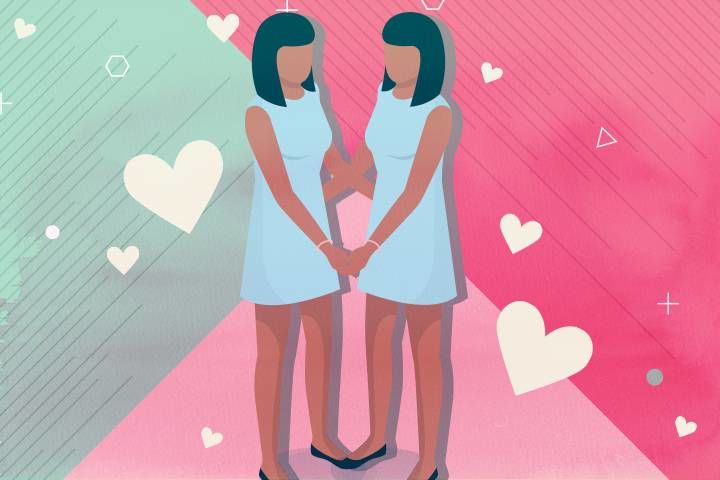Ghia Vitale was seven years old when she first realized she was sexually attracted to herself.
“By my third year in college, I saw myself as in a relationship with myself,” Vitale told Global News. “However, I didn’t have the vocabulary to express my experience until shortly after I graduated college in 2013.”
Vitale identifies as autosexual and autoromantic, which she defines as having a sexual and romantic attraction to herself.
According to Jess O’Reilly, a sex and relationship expert and host of Sex with Dr. Jess, autosexuality is experienced differently from person to person.
“Some people might use it to define themselves and some people might use it as a categorical identity,” says O’Reilly.
Those who identify as autosexual can be aroused by themselves, by their own naked flesh or by the “power of self pleasure.”
“I think that, to some degree, we’re all a shade of autosexual,” O’Reilly says. However, O’Reilly believes some people have trouble embracing their autosexuality because of body shaming.
WATCH BELOW: Can you really stay friends with your ex?

“We’ve been told that our bodies aren’t attractive enough. I wouldn’t be surprised if, to experience autosexuality, you have to be at ease with your body,” she said.
When Vitale was younger, she struggled to understand why others didn’t like her body as much as she did.
“I can remember having just gotten out of the shower; I was looking at myself in the mirror, and getting very attracted to the sight. I couldn’t help but wonder why my peers didn’t like my fat body as much as I did, but my erotic image of myself wasn’t able to override their taunts or criticisms, so I struggled with low self-esteem and poor body image for the entirety of my adolescence,” she writes in an article for Medium.
It wasn’t until when Vitale was in college that she fully embraced her autosexuality. “I craved alone time because I was able to bask in my body and my mind without interruption; I intensely enjoyed bonding with myself,” she says.
O’Reilly points to something she calls the ‘core erotic feeling’ to suggest that autosexuality can promote a positive understanding of self.
“That’s the feeling you require to even consider having sex, and for many of us, our core erotic feeling involves feeling sexy and feeling desired,” says O’Reilly. “You might have an outside source who conveys that desire or it may be even within yourself.”
Autosexuality is often compared to narcissism, but O’Reilly believes that’s categorically wrong.
“How cool is that — to feel an attraction to yourself? Can’t we give ourselves permission to also feel arousal in response to our own body?”
WATCH BELOW: The key to a happy and healthy relationship

It’s important to note that being autosexual doesn’t preclude someone from having relationships with others, said O’Reilly.
“Some autosexuals are only attracted to themselves, but I’m not one of them,” Vitale says.
“I’ve been in a relationship with my boyfriend since I was in high school. Our 14-year anniversary is approaching. My boyfriend appreciates my autosexuality [and] autoromanticism, and [he] sees it as a good thing.”
Vitale has met some other autosexuals online, but only one in real life. “Sometimes, being an autosexual can feel lonely because I don’t know too many other self-identified autosexuals or autoromantics,” said Vitale.
“I sometimes talk with other autosexuals and autoromantics about the experiences we have, [and] that makes me feel validated.”
Joshua Peters, the head of gender, sexuality and relationship diversity at the Centre for Interpersonal Relationships, hopes more people will start to identify as autosexual as millennials come of age.
WATCH BELOW: The key to a happy and healthy relationship

“[Millennials] are able to de-shame sex and look at it in different and new ways. This is just a natural step in that [progression],” Peters says.
Peters believes that talking about autosexuality can help lessen the stigma around it.
“I think what most people probably think of is that scene in American Pyscho where Christian Bale is looking at himself in the mirror, but it doesn’t need to be this big, narcissistic moment,” says Peters.
“It can just be a healthy experience of the self and a reawakening of the sexual experience. So many people have body-shaming throughout their lives. If you’re able to actually get your kicks from yourself, then enjoy that. I think it’s actually quite liberating.”
Vitale wants people to know that identifying as autosexual is valid.
“It’s not a ‘fake sexuality’ because it’s not as common as other forms of sexuality,” said Vitale. “Sexuality can be nuanced, fluid, and expressed in different ways.”
